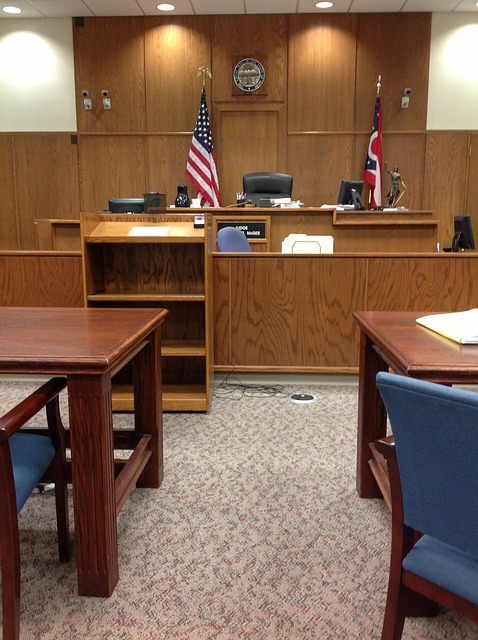Plea bargaining offers defendants advantages like quicker trials and reduced sentences but carries risks. Defendants need skilled legal counsel to navigate pressure and ensure fair treatment. Prosecutors balance justice with alternatives, aiming for efficient outcomes while mitigating damages, making plea bargaining a key component of criminal law enforcement despite potential criticisms.
In the intricate landscape of criminal law enforcement, plea bargaining stands as a pivotal process shaping outcomes for defendants. This article delves into the nuanced world of plea bargaining, exploring its benefits and drawbacks in detail. We examine how this mechanism offers defendants reduced sentences, while also highlighting potential injustices and waived rights. Furthermore, we analyze the delicate balance prosecutors must maintain during negotiation and the broader impact on system efficiency. Understanding the pros and cons of plea bargaining is crucial for both legal professionals and those navigating the criminal justice system.
- Understanding Plea Bargaining Process
- Benefits for Defendants: Reduced Sentences
- Drawbacks: Potential Injustices and Waived Rights
- Balancing Act: Prosecutor's Role in Negotiation
- Impact on Criminal Justice System Efficiency
Understanding Plea Bargaining Process
Plea bargaining is a critical aspect of the criminal justice system where defendants and prosecutors negotiate an agreement to resolve a case outside of trial. This process offers both advantages and disadvantages for those involved, especially in the context of general criminal defense. On one hand, plea bargaining allows defendants to avoid the often lengthy and stressful trial process, potentially leading to quicker resolution and reduced sentences. It provides an opportunity for individuals to accept responsibility for their actions and move forward with their lives. Moreover, skilled legal counsel can use this strategy to achieve winning challenging defense verdicts, ensuring a favorable outcome for their clients.
However, the plea bargaining pros and cons for defendants are complex. While it may offer relief from harsher punishments, there’s a trade-off in terms of pleading guilty to a crime one might not have committed. The process can be intimidating, with pressure from prosecutors aiming to secure convictions. As such, achieving extraordinary results often requires meticulous navigation through this intricate system, ensuring that the defendant’s rights are protected throughout and they receive a fair and just outcome, even if it isn’t always an acquittal or complete dismissal of charges.
Benefits for Defendants: Reduced Sentences
One of the key benefits for defendants in the context of criminal law enforcement is the potential for reduced sentences through plea bargaining. Plea bargaining pros and cons for defendants are a critical aspect of the legal system that allows for more favorable outcomes than a trial might yield. By pleading guilty or no contest, individuals can often negotiate a lesser charge or a shorter prison term. This strategy, while not guaranteed, can significantly mitigate the consequences for corporate and individual clients alike, offering a viable path to avoiding indictment in many cases.
The process involves defendants working with their general criminal defense attorneys to reach an agreement with prosecutors, where they accept responsibility for their actions in exchange for a reduced sentence or alternative penalty. This approach not only saves time and resources but also provides a measure of certainty, as defendants can bypass the risks associated with a trial, including potential convictions on more severe charges.
Drawbacks: Potential Injustices and Waived Rights
While plea bargaining offers numerous advantages, such as reduced sentences and a faster resolution, it also comes with significant drawbacks. One of the primary concerns is the potential for injustice. Defendants may accept a plea deal because they feel pressured or lack a robust understanding of their rights. This can lead to waiving important legal rights, including the right to a trial by jury, which could result in convictions based on questionable evidence or without the full presentation of both sides’ cases.
Moreover, plea bargaining disproportionately affects individuals accused of white-collar and economic crimes. The complexity of these cases often means that defendants face lengthy and intricate legal battles. Plea bargaining may not always achieve extraordinary results for his clients as it can be a double-edged sword. A rushed decision to avoid prolonged litigation could result in less favorable outcomes, leaving some victims feeling shortchanged or leading to further legal complications down the line.
Balancing Act: Prosecutor's Role in Negotiation
In criminal law enforcement, prosecutors play a pivotal role in the plea bargaining process, acting as both advocates for justice and facilitators of negotiated resolutions. Plea bargaining is a crucial aspect of the all stages of the investigative and enforcement process, allowing defendants to negotiate a deal that may result in a lighter sentence or even a complete dismissal of all charges. This balancing act requires prosecutors to weigh the pros and cons for both parties, considering factors such as the strength of evidence, potential impact on victims, and the defendant’s willingness to cooperate.
While plea bargaining can offer defendants an opportunity to avoid harsher penalties, it also has its drawbacks. For white collar defense attorneys, evaluating these trade-offs is essential to crafting effective strategies. Ultimately, successful plea negotiations require a delicate equilibrium where prosecutors ensure justice is served while offering defendants a viable alternative to trial, fostering a more efficient and potentially less damaging outcome for all involved.
Impact on Criminal Justice System Efficiency
Plea bargaining is a critical aspect of the criminal justice system that significantly impacts its efficiency. This process allows defendants to negotiate a plea deal with prosecutors, often resulting in a reduced sentence or charges in exchange for admitting guilt. While plea bargaining has its pros and cons for both corporate and individual clients, it serves as a vital tool for navigating complex legal systems. For his clients, this strategy can offer a more favorable outcome than going to trial, reducing the time spent in pre-trial detention and potentially avoiding harsher penalties.
The efficiency gains are substantial, as plea bargaining streamlines the judicial process by reducing the number of trials needed. This benefits respective businesses and individual clients alike, ensuring that legal matters are resolved faster, freeing up resources for all involved parties. However, critics argue that it may encourage guilty pleas from those who are actually innocent, leading to concerns about due process. Nonetheless, when managed properly, plea bargaining remains an essential mechanism in modern criminal law enforcement.
Plea bargaining, a critical aspect of criminal law enforcement, offers defendants potential benefits such as reduced sentences. However, it also presents drawbacks, including potential injustices and waived rights. Prosecutors play a balancing act in these negotiations, aiming to enhance the efficiency of the criminal justice system while ensuring fairness. By weighing the plea bargaining pros and cons for defendants, we can better navigate this intricate process and strive for a more balanced approach within our legal framework.






